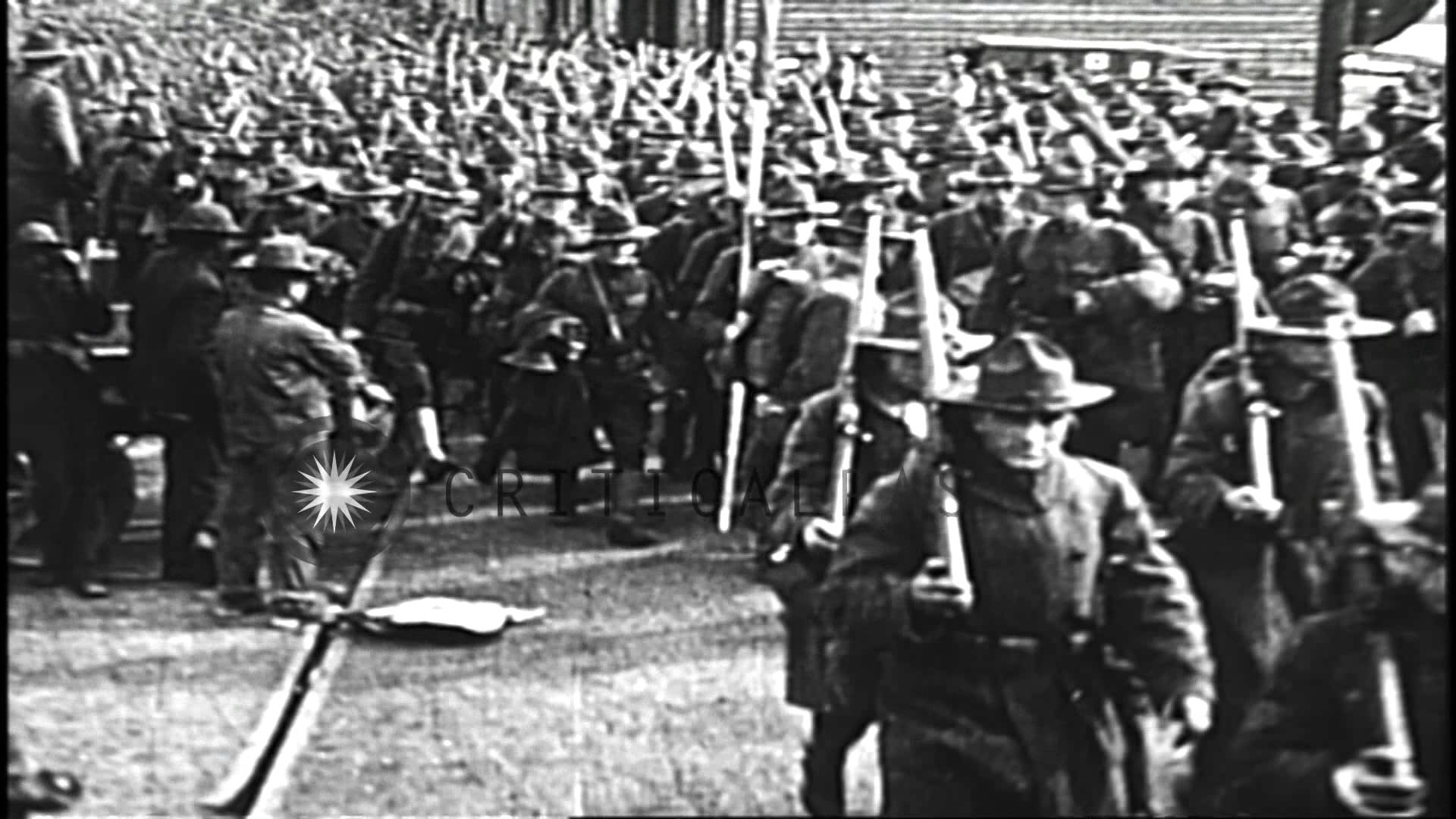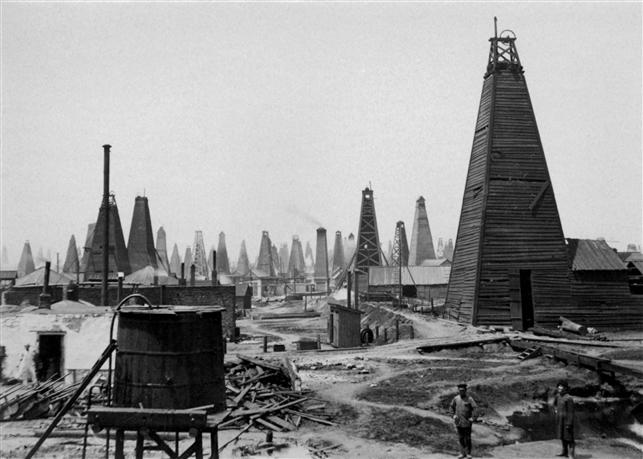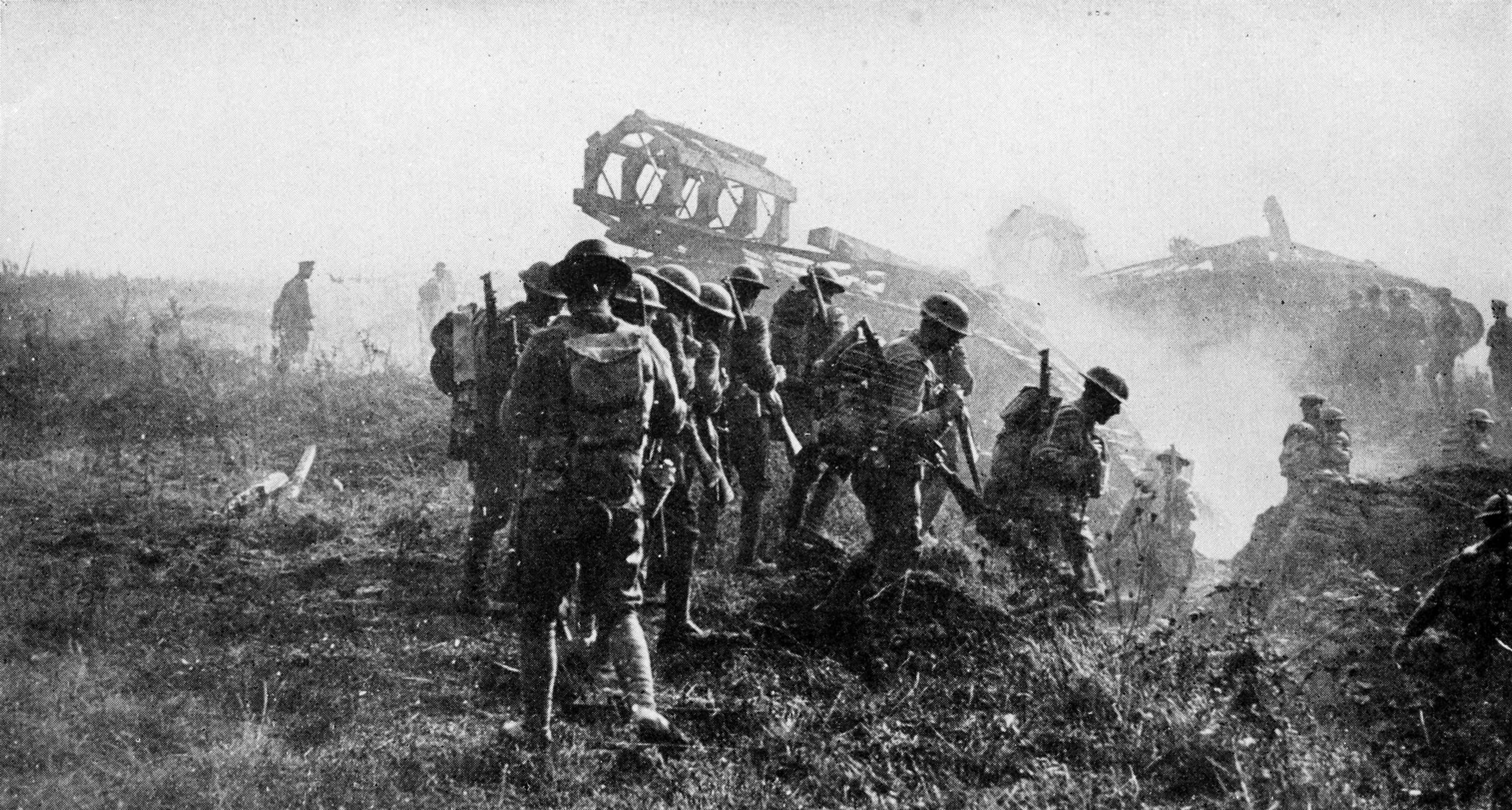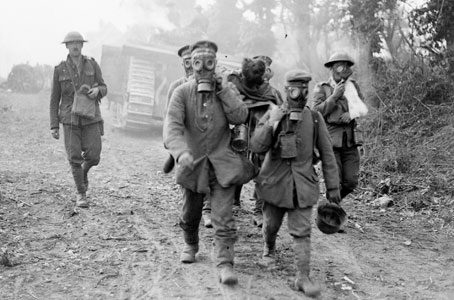War Almost Over, but Can They See It?
What About Bolshevik Russia?
Allies Dismembering the Russian Empire
Special to The Great War Project.
(27 August) American troops have landed at Russia’s far eastern port at Vladivostok. Russia is once again in play.
The date is August 16th a century ago, according to historian Martin Gilbert.
It is only the first stage of the Allied extension of their forces far beyond the limits of Europe and the Western Front.

Americans in Vladivostok
The next day, reports Gilbert, the Allies extend their presence in the Middle East and the Caucasus.
“A British force having come northward from Persia, entered the city of Baku on the Caspian Sea.”
It is “a British challenge to the Germans, and the Bolsheviks in the Caucasus.” It is also a move to cut off Russia from the Germans, but that can occur only if the British set up a puppet Tsar of their own in Russia. So far that is not taking place.

The oil fields at Baku.
But then an unexpected twist. Germany persuades Bolshevik Russia “to sign a supplementary peace treaty in which the Bolsheviks promised to fight against the Allies in northern Russia.”
“In what they perceived as their national interest,” Gilbert writes, “Lenin and the Kaiser were making common cause.” Among the provisions of this agreement, Germany takes possession of all Red navy vessels and facilities in the Black Sea.
In late August on the Western Front, reports historian Norman Stone, “the Germans are taken by surprise.” In the first day of renewed fighting, “a triumph” according to historian Stone, “almost 50,000 prisoners were taken by the end of the operation.”
“There is a mysterious process in the defeat of any army,” writes Stone, “The point at which the men give up hope.”
The German army’s morale began to break, reports historian Stone, in late July a century ago. When the Kaiser asks his commanding general what had gone wrong, the general responds “the men were just not fighting any more. Thousands were surrendering…”
And Stone reports,
“men were reporting sick in greater and greater numbers.”
As of late August, the war is almost over. “It was obvious enough,” writes Stone, but “the belligerents – Britain, France, the United States, and Germany – don’t know that. They are all planning to continue the war into 1919.

Americans on Western Front, summer 1918.
“Such was the habit of war-making, “writes Gilbert, “and such was the impact of that infinite hatred over four years, that London, Paris, and even Berlin continued to think in terms of renewed offensives, retrenchment, and the war of 1919.”
It was obvious enough in Germany’s case that it would be defeated. The record is quite clear. “She had lost over a million men between March and July and a further three-quarters of a million in the succeeding months.”

German gas units, Western Front, summer 1918.
“There was also a crisis in the German war economy with plant wearing down,” Stone writes. No doubt the country could have fought on into 1919, but the end was in sight. It just depended on which leaders had the courage to see it.
